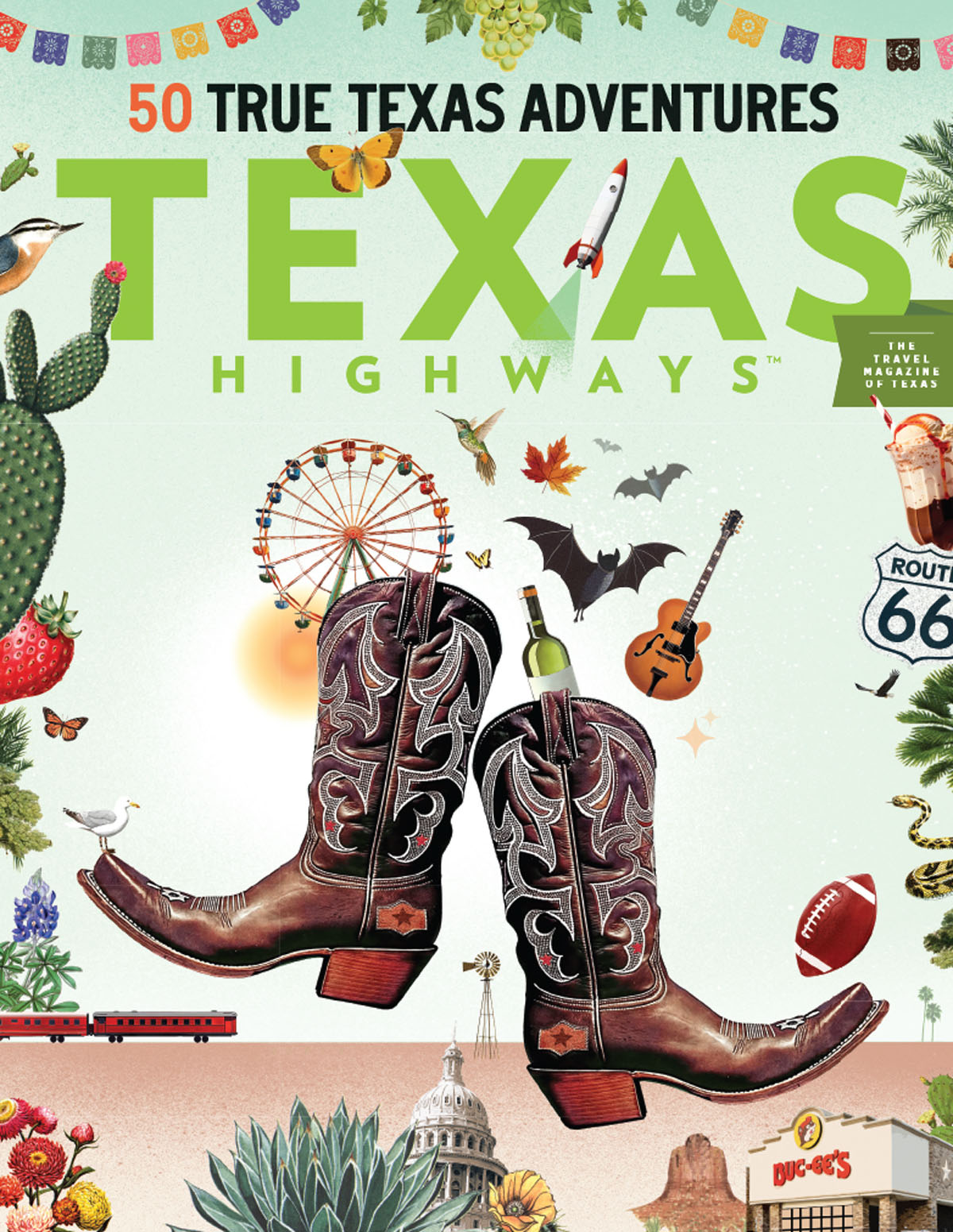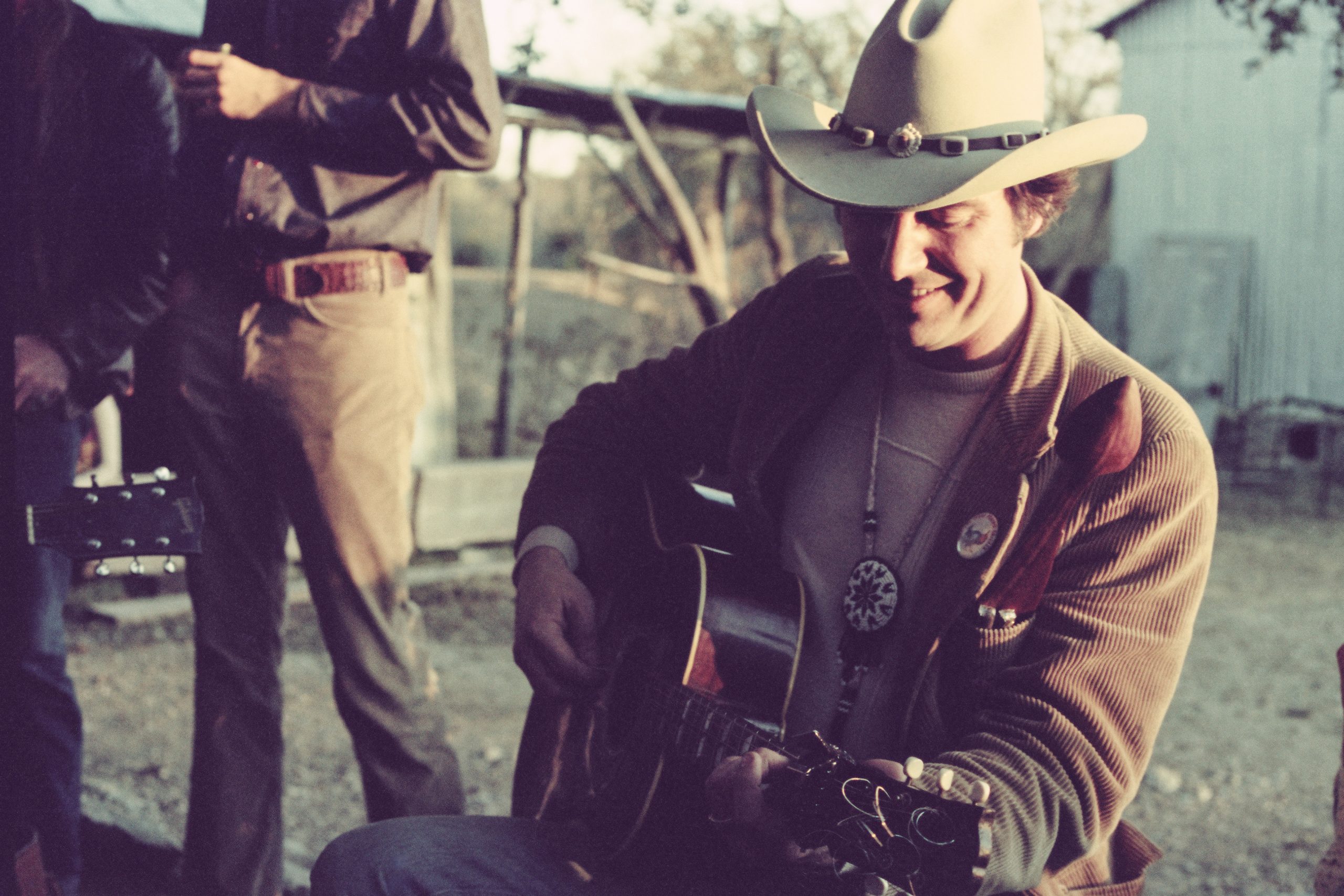
Jerry Jeff Walker in December 1974 on his wedding day in Luckenbach. Photo by Scott Newton
When Craig Hillis visited ¡Viva Terlingua! The Big Bang of Texas Music in September, he was more amazed by what he heard than what he saw. The new exhibition at the Wittliff Collections, located at Texas State University in San Marcos, features an hourlong loop of never-released recordings from Jerry Jeff Walker’s quintessential outlaw country album, including a show-closing, seven-minute version of “Goodnight, Irene” with each musician in the band singing a verse of their own words. As the loop plays in the background, the recordings take visitors inside the weeklong sessions that took place in Luckenbach in the summer of 1973. But Hillis, the lead guitar player on the album, had a different reaction on his visit.
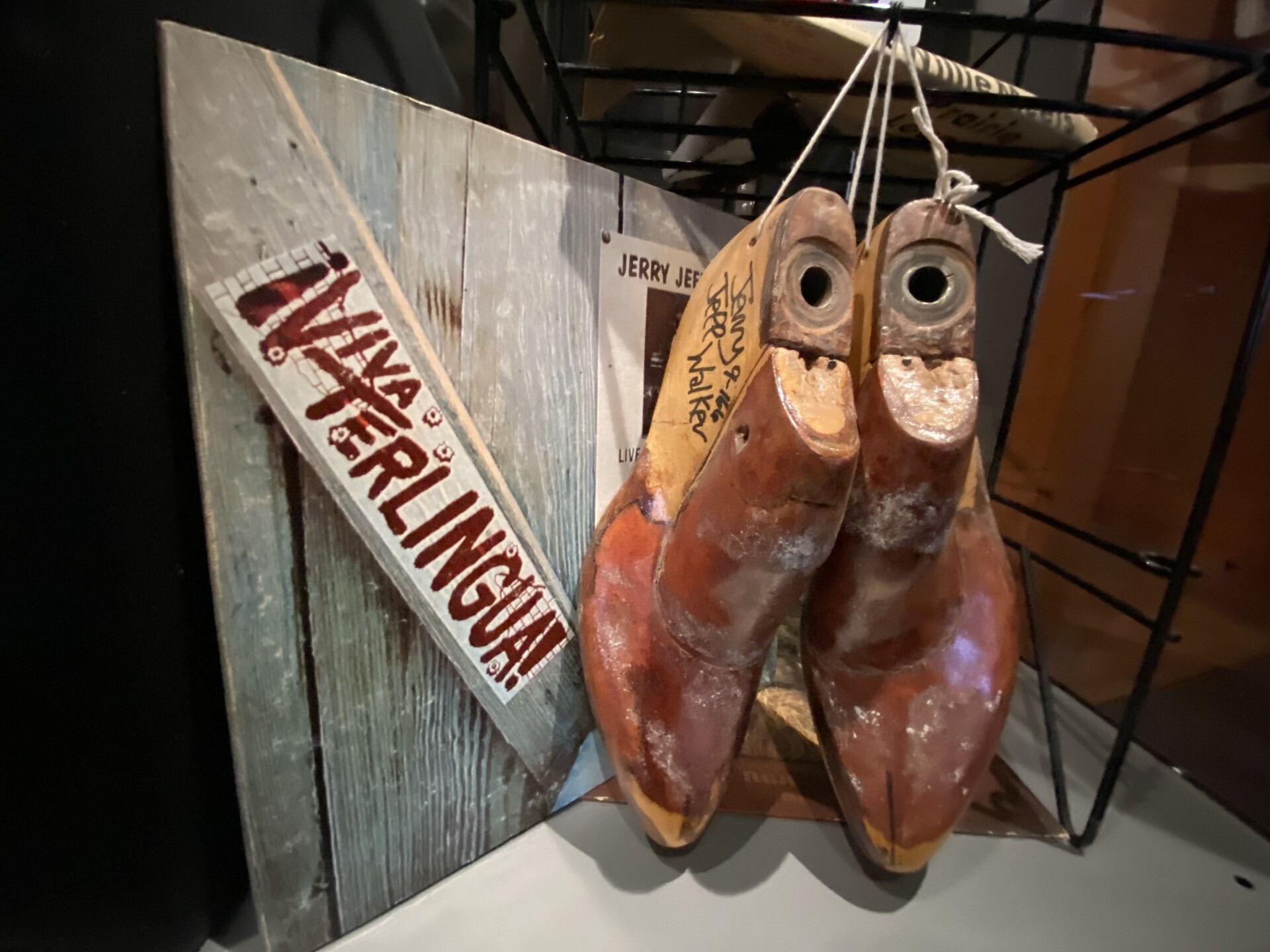
Items from the ‘¡Viva Terlingua! The Big Bang of Texas Music’ exhibition at the Wittliff Collections in San Marcos. Photo by Mark Willenborg at The Wittliff.
“That music blows certain myths surrounding the creation of the album,” he says. Especially revelatory was the snippet of Gary P. Nunn introducing “London Homesick Blues” to the band at an afternoon jam. In interviews over the years, band members recalled the tune being recorded without rehearsal. Hillis, too, believed that to be the case until he heard the group working on their “I wanna go home with the armadillo” harmonies over the Wittliff’s speakers.
“I was stunned,” he says. “I think we were so wrapped up in making the record it became a blur, and we tried to piece the details together later.” Documentation always beats memory.
¡Viva Terlingua! The Big Bang of Texas Music is a trip back to the heyday of joyfully rowdy outlaw country. (If ever there was an exhibit that needed a bar to sidle up to, it’s this one.) Billing Walker’s classic LP as “the Big Bang of Texas Music,” the Wittliff opened the show on the 50th anniversary of the Aug. 18, 1973, blowout in Luckenbach, where Texas party anthems “Up Against the Wall, Redneck Mother” and “London Homesick Blues” were recorded in front of a live audience. The gallery on the seventh floor of the Alkek Library is a sensory explosion of blown-up photos, handwritten lyrics, annotated tape boxes, used instruments and worn clothing by band members, and other artifacts.
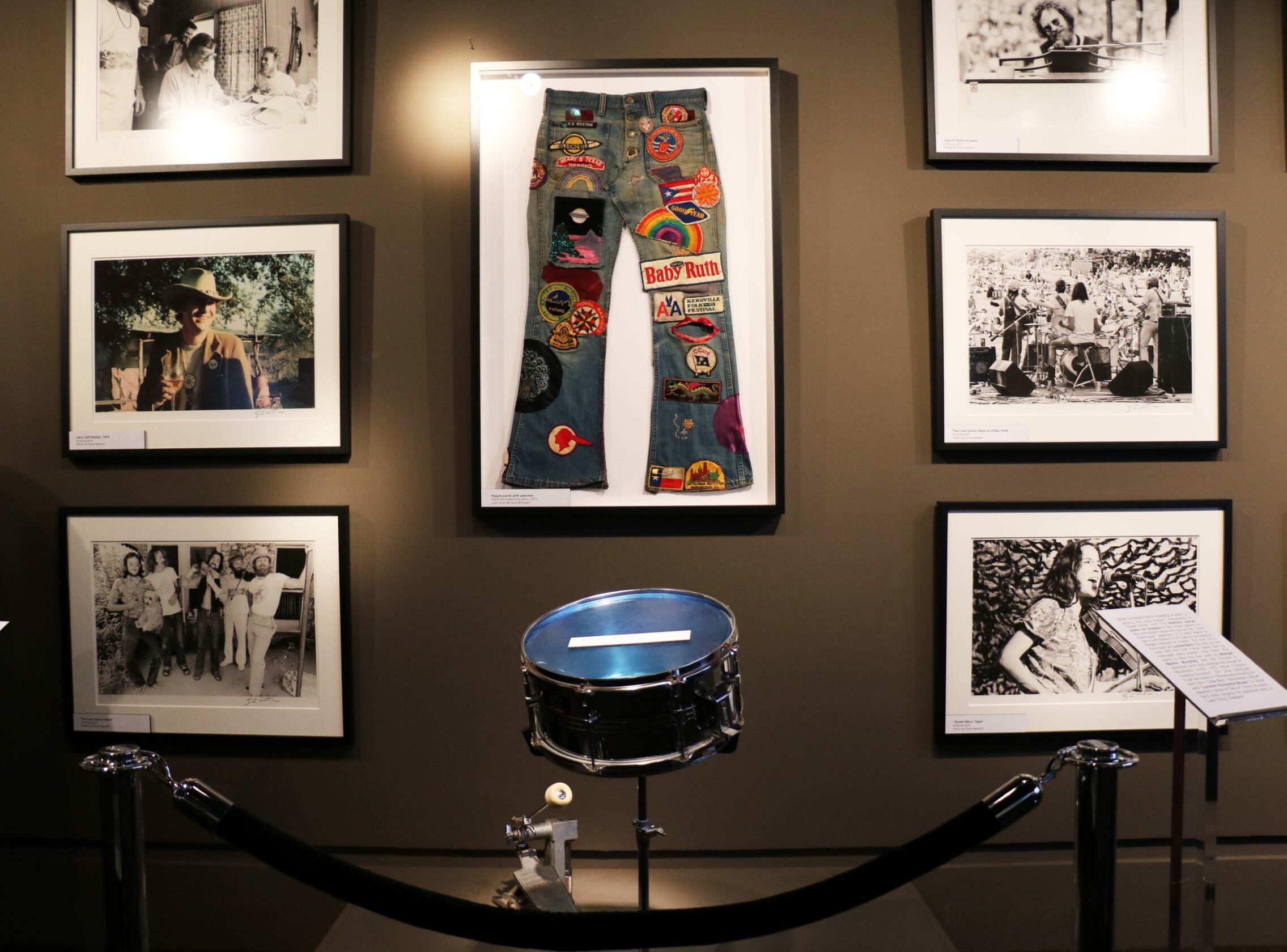
The snare drum Michael McGeary played on the album. Photo by Mark Willenborg at The Wittliff.
The ephemera in the exhibit comes from a collection started more than 30 years ago. Walker, who passed away in 2020, and his wife, Susan, had a close relationship with the Wittliff Collections, founded by their friend, the writer Bill Wittliff. They donated their first items in 1991: a pair of lizard-skin cowboy boots and the handwritten lyrics to “Charlie Dunn,” the song about the man who made them. In 2017, the Walkers donated all the songwriting giant’s papers and materials, so the current exhibit also serves as a career retrospective. Fans of “Mr. Bojangles” are not forgotten.
On the restored 16-track ¡Viva Terlingua¡ tapes, assembled by Hector Saldaña, the Wittliff’s Texas music curator, and mixed by tape preservationist Jon Harter, you can listen to ¡Viva Terlingua! coming together in Luckenbach, the honky-tonk town near Fredericksburg. “To hear, for the first time, tracks left off the album was pretty jaw-dropping,” says Saldaña, who points to story-song “Chicken Fried Rat” as evidence of all the fun the musicians were having.
You can also hear Walker seemingly make up lyrics on the spot, then change them on the next take of “Gettin’ By,” the first song on the album that would become his concert opener for years.
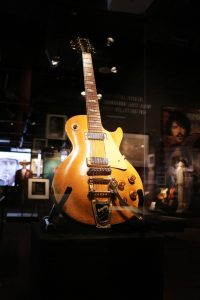
The guitar used by Craig Hillis on the song “Sangria Wine.” Photo by Mark Willenborg at The Wittliff.
With soulful live renditions of Guy Clark-penned tunes “L.A. Freeway” and “Desperados Waiting for a Train” and strong alternate takes on “Up Against the Wall, Redneck Mother,” “Backslider’s Wine,” “Little Bird,” and “Sangria Wine,” with an infectious riff that Hillis based on James Brown’s “Papa’s Got a Brand New Bag,” you wonder why there’s never been a deluxe version of the album. Until that eventuality, you can hear these live tracks, plan B versions, and outtakes only at ¡Viva Terlingua! The Big Bang of Texas Music.
“What I love most about these [unearthed] recordings is the unmistakable comradery among all the players,” Hillis says. “We weren’t hired hands. We were the band.” Walker says as much at the end of the “London Homesick Blues” rehearsal, with Nunn on lead vocals: “All my friends are making this album for me.” He was Tom Sawyer with a guitar instead of a paint brush, and a mindset to not disturb the groove.




